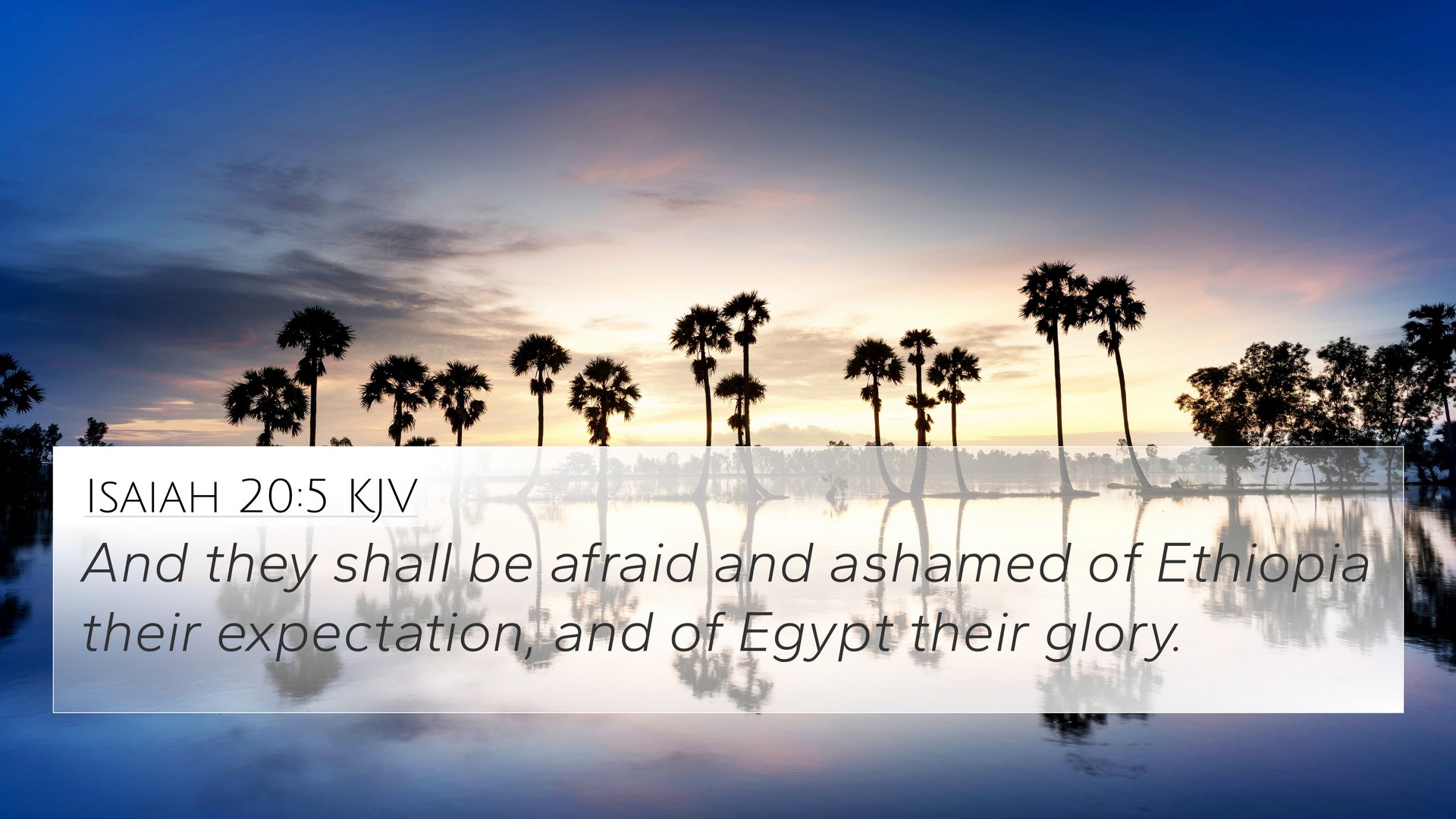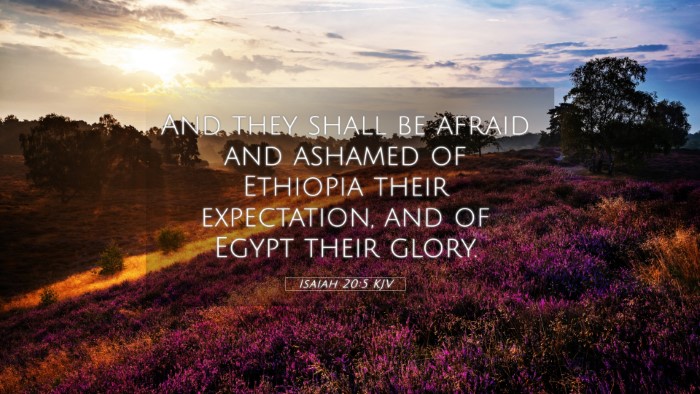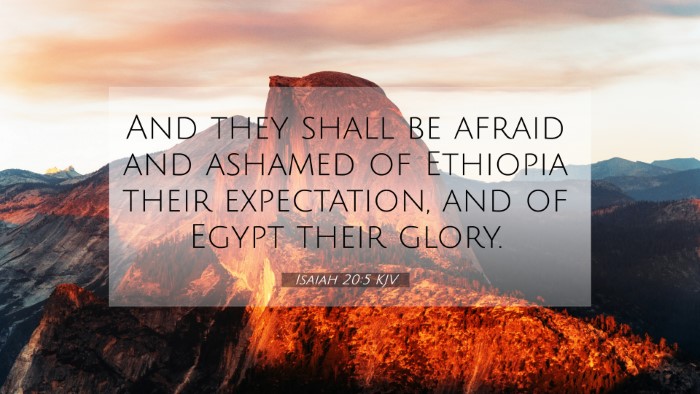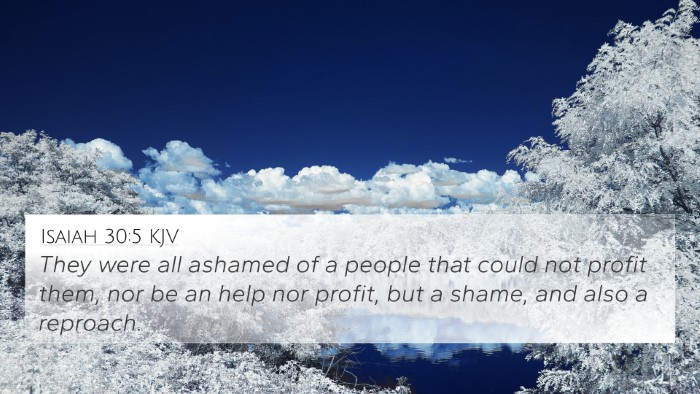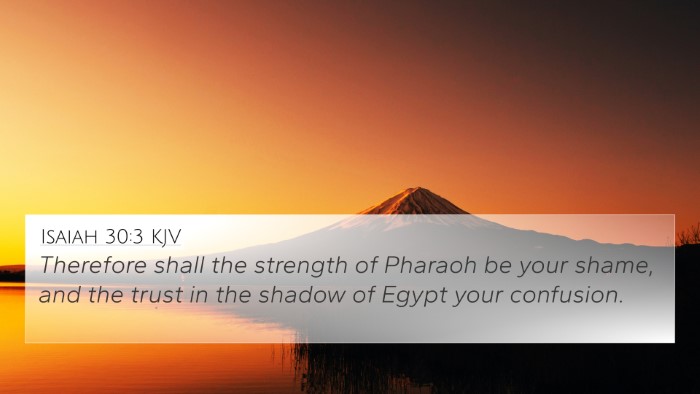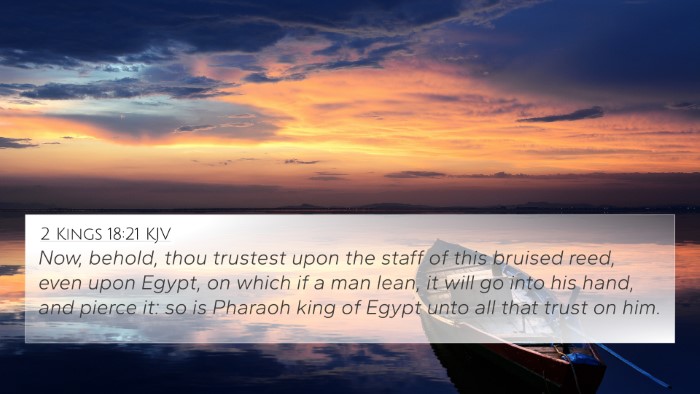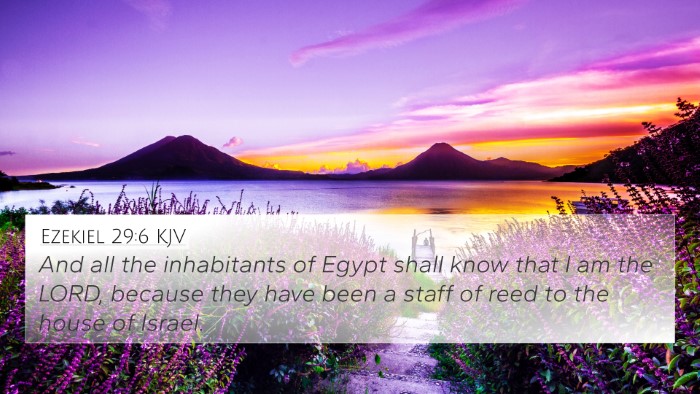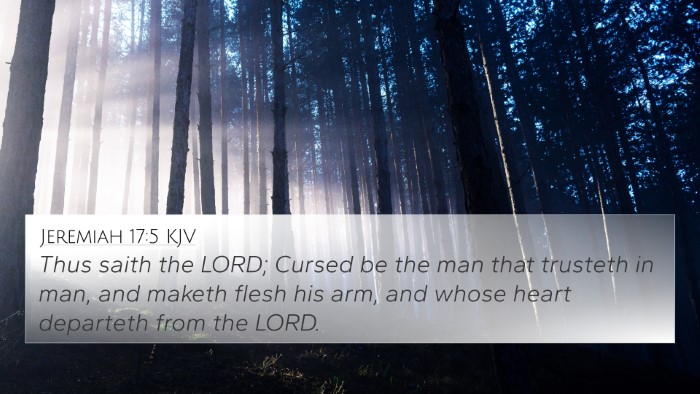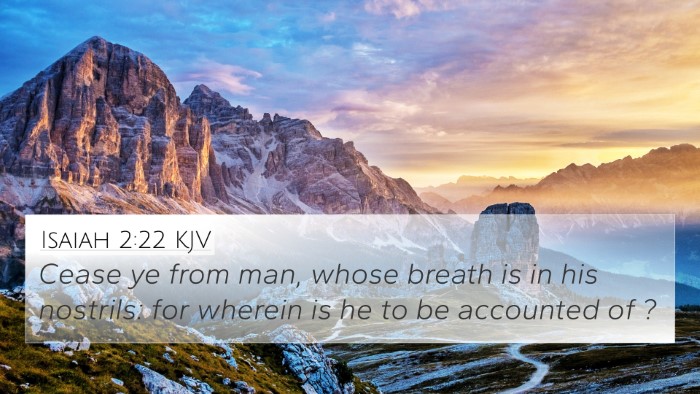Understanding Isaiah 20:5
Isaiah 20:5 reads: "And they shall be afraid and ashamed of Ethiopia their expectation, and of Egypt their glory." This verse occurs within the context of a significant prophetic warning concerning the fate of Egypt and Cush (Ethiopia), as well as the reliance of Israel on these nations for help.
Meaning and Interpretation
Isaiah 20:5 highlights the futility of relying on earthly powers for salvation. Public domain commentaries provide valuable insights into this verse:
- Matthew Henry: Emphasizes the spiritual significance behind the national shame experienced by these nations as they face inevitable judgment. The confidence placed in Egypt and Ethiopia will lead to disappointment as their expectations will be dashed.
- Albert Barnes: Notes that the shame spoken of reflects a deeper truth about misplaced trust. The verse symbolizes the illusion of power and glory that these nations believed they possessed, which will ultimately prove to be worthless.
- Adam Clarke: Offers a perspective on the historical context, explaining how the nations mentioned were once formidable. However, their incapacity to provide support will render them desolate in the eyes of those who relied on them.
Thematic Connections
This verse not only conveys a specific message regarding the nations of Ethiopia and Egypt but also opens avenues for Bible verse cross-references to other parts of scripture. Here are several cross-references that enrich our understanding:
- Isaiah 30:3 - "Therefore shall the strength of Pharaoh be your shame, and the trust in the shadow of Egypt your confusion." This verse directly echoes the theme of trust in earthly powers leading to disappointment.
- Isaiah 31:1 - "Woe to them that go down to Egypt for help..." reinforces the central message of Isaiah's warning against relying on foreign nations.
- Jeremiah 46:5 - Describes the fear and defeat of Egypt, aligning with the prophecy of shame and desolation articulated in Isaiah 20:5.
- Psalm 20:7 - "Some trust in chariots and some in horses; but we will remember the name of the Lord our God." This offers a contrasting viewpoint that proclaims faith in God rather than in worldly powers.
- Isaiah 36:6 - Looks at the reliance upon Egypt and the repercussions of faith placed in fragile alliances.
- Hosea 10:3 - Speaks to the spiritual desolation of Israel for relying on something other than God.
- Micah 7:12 - Encourages the notion that ultimately all reliance upon nations or worldly systems shall end in destruction.
Exploration of Cross-Referencing
The concept of cross-referencing Biblical texts helps to unveil the interconnectedness of scripture. Here are some tools and resources for those interested in deepening their study through Bible cross-reference systems:
- Bible Concordance: A tool that indexes words and verses to find connections.
- Bible Cross-Reference Guide: Resources that highlight related passages based on themes or topics.
- Comprehensive Bible Cross-Reference Materials: These enrich understanding by linking similar verses across both the Old and New Testaments.
Conclusion
Isaiah 20:5 serves as a poignant reminder of the shortcomings of relying on human strength rather than divine providence. It reflects a broader narrative throughout the scriptures emphasizing trust in God over worldly assurance. Through the comparative Bible verse analysis, one uncovers rich, thematic Bible verse connections that illuminate the scriptures in a profound way, guiding us in understanding faith, trust, and the consequences of turning away from God.
